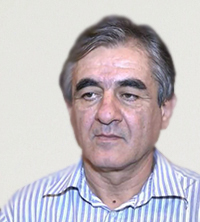
– Mr. Sargsyan, in the last decades, there was a problem of freedom of thought and belief. After the change in power in 2018, there seems to be no serious problems, but the new government does not undertake systematic or legislative solutions. It is not clear what kind of policy the government is doing in this and many other areas.
– The new government has stated that it will not intervene in church affairs, and the church should not intervene in government affairs. It was said last year in connection with the break-up of the Armenian Church, when a group of church members demanded the resignation of the Catholicos led by several priests. Both the church leaders and leaders of the movement against the Catholicos appealed to the government to intervene in their favor.
The government did not intervene in that process. At the same time, the government has not frozen relations with the church, in particular, the Catholicos and the prime minister are taking part in different events, the prime minister visits the church and so on. But we must admit that the status of the church has changed. The process of convergence of power and church has been stopped.
The impact of the church on the state life has drastically reduced, and the impact on the society has diminished. Under such circumstances, the church must find a new role for itself. It’s a complicated process by which Catholic and numerous Protestant churches have passed.
– Representatives of religious organizations operating in Armenia generally share the same viewpoint. Unlike before, now no one worries them. The number of media against them has dropped, but what happens tomorrow when the situation changes, they do not know. There are no guarantees, legal, or other, for them to be sure that the situation will not be repeated.
– And how was it before? There was a thesis that the Armenian Apostolic Church was national, while others were sects and using that thesis would pressure others. This thesis has been forgotten. It all depends on how these churches will show themselves, how will they fix their truthfulness.
They may even bring criminal cases against the old ones and clarify the extent to which the attitude of the authorities and the Armenian Church towards their specific cases was legitimate.
– Armenia is not a country cut off from the world. Now, the religious issue gets different shades. For example, Europe is a post-religious area, but many migrants do not want to live a secular life, which creates problems. Some radical organizations in their turn want to return to the old, Christian identity as a defensive instrument, but life has gone forward, and most of these societies do not want to turn into religious societies again. Such developments can have an impact on Armenia.
– The situation in Armenia is more clear. We do not have such an immigration. There is also another problem: how religious communities affect society. Religious organizations in Armenia are largely marginalized and have no influence outside their communities, and the Armenian Apostolic Church is presenting to its audience as a national structure giving a secondary place to the faith itself. Under such conditions, it is difficult to predict whether we’ll ever face such problems or no, at least in the near future.